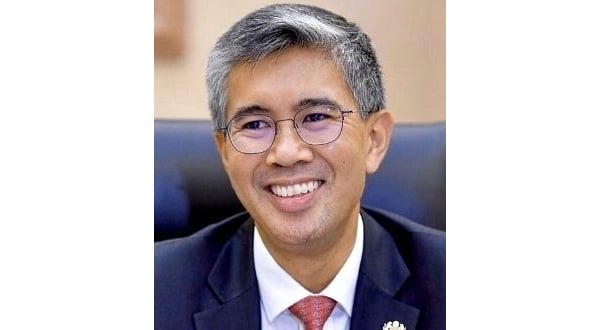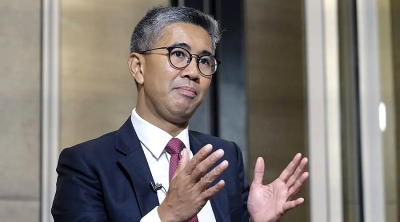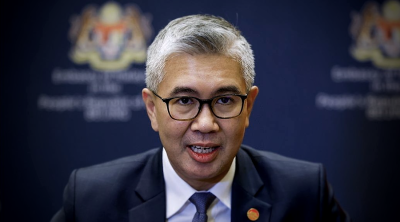
In my two-hour speech during the tabling of Budget 2022 in the Dewan Rakyat on October 29, I made nearly 30 references to Keluarga Malaysia. The frequency of this phrase in one of Parliament’s most important speeches demonstrates how central this theme is to Budget 2022.
Keluarga Malaysia is the brainchild of Prime Minister Datuk Seri Ismail Sabri Yaakob. It is also a principle that I wholeheartedly support. It refers to the sense of inclusiveness and togetherness that have held this country’s colourful fabric together since even before Independence.
Budget 2022 is formulated to embody this noble spirit, as well as the principle that no member of a family should be left behind. In fact, since I became Finance Minister, we at the Ministry of Finance (MOF) have always crafted the annual budget based on needs, not race, religion or creed.
This is why, over the weeks since its tabling, it has been disheartening to see how some quarters of our society have cherry-picked portions of the speech to insinuate how the Budget prioritises the Bumiputera community at the expense of the non-Bumiputera beneficiaries. In my humble opinion, advocating such a distorted view is not only irresponsible, but also bordering on hate-instigation.
I can assure Malaysians that our Budgets are never formulated through racial lenses, and measures favouring one group over another is complete nonsense, not least because of the extensive stakeholder engagement that we conducted.
Prior to the formulation of Budget 2022, MOF had sought stakeholders’ perspectives through 28 focus groups with captains of industries; 80 engagement sessions with various stakeholders; including the Opposition, and turun padang to Johor, Kedah, Pahang, Penang, Sabah, Selangor and Melaka. Other states were also covered by my deputies.
The MOF received over 1,200 responses from the Public Consultation Papers, over 1,000 memorandums from 105 entities, and over 50,000 suggestions through our Budget 2022 portal. All of these were thoroughly considered and evaluated.
But here’s an undeniable fact: close to 70 per cent of Malaysians are Bumiputeras, which includes indigenous groups from Sabah and Sarawak, as well as the Orang Asli. Keluarga Malaysia must support its members who have fallen behind economically, just as parents would send their children to tuition for subjects they have yet to master. Admittedly, this is partly due to legacy issues, which MOF is closely looking into, but this deserves an entirely separate discussion.
Naturally, as the numerically dominant segment in our rich and colourful racial tapestry, these people would receive the most assistance. The logic is straightforward: if the dominant community continues to be left behind, so will the country. By the same token, should the dominant community thrive, the country will thrive, too.
 But here is the harsh reality: As of 2018, Bumiputera equity ownership was only 16.9 per cent. In terms of absolute poverty, Bumiputeras make up 7.2 per cent, compared with the Chinese at 1.4 per cent, and Indians at 4.8 per cent. In 2019, the median household income for the Bumiputera was RM5,420, compared to RM7,391 for the Chinese, and RM5,981 for the Indians.
But here is the harsh reality: As of 2018, Bumiputera equity ownership was only 16.9 per cent. In terms of absolute poverty, Bumiputeras make up 7.2 per cent, compared with the Chinese at 1.4 per cent, and Indians at 4.8 per cent. In 2019, the median household income for the Bumiputera was RM5,420, compared to RM7,391 for the Chinese, and RM5,981 for the Indians.
Furthermore, as the Twelfth Malaysia Plan (12MP) has highlighted, there is cause for concern, as Bumiputera households accounted for 65.1 percent of total national households in 2019, with 71.4 percent of them falling into the B40 income bracket. The COVID-19 pandemic has had an even greater impact on Bumiputera income growth, wealth ownership and job opportunities. In 2020, Bumiputera unemployment was 57.1 per cent of total unemployment, with the majority of them aged between 15 to 30.
However, just because the Bumiputera segment receives special attention, it does not imply that other races receive less. Just as there are poor Malays, the Government recognises that there are also poor Chinese, Indians, Kadazans, Ibans and others.
For example, the RM8.2 billion Bantuan Keluarga Malaysia (BKM), which would benefit 9.6 million recipients. This will be based on data from the BKM’s predecessor, the Bantuan Prihatin Rakyat, whose recipients were recorded as 58 per cent Malays, 19 per cent Chinese, and eight per cent Indians. There are no prizes for guessing why the percentages are as they are: they roughly reflect our population demography.
Indeed, Budgets 2021 and 2022, as well as the eight economic stimulus and assistance packages include a number of initiatives whose primary beneficiaries are non-Bumiputeras.
A case in point is the various SME funding under Bank Negara Malaysia’s facilities totalling RM11.2 billion in Budget 2022. Based on previous records, approximately 20,000 SMEs are expected to benefit from these initiatives. And, according to the Department of Statistics Malaysia (DoSM) 2016 Economic Census Survey, non-Bumiputeras own 80 per cent of the small and medium enterprises, while Bumiputeras are primarily involved in the informal and micro segments of the country’s business community Despite this, the survey found that only 44 per cent of the 500,000 micro enterprises are owned by Bumiputeras. Given that MSMEs employ 70 per cent of the country’s workforce, it is only natural that the Government wants to assist this segment in getting back on its feet as soon as possible.
Wage subsidies are another important financial aid rolled out in previous stimulus packages, and included in Budget 2022 for specific sectors. The Government has set aside RM20 billion for this program, which assists employers in retaining workers to keep their businesses afloat. Naturally, given our SME demographic, non-Bumiputera companies are expected to form the majority of this measure’s beneficiaries.
In short, just as there are many measures that help the Bumiputeras, there are also many initiatives that benefit the non-Bumiputeras.
Budget 2022 has always prioritised needs. It was never based on race, religion or creed, and as long as I am the Minister of Finance, it never will be. Our Budgets for 2021 and 2022 are colour-blind. Right now, the only “race” we should be concerned about is the “race” to full economic recovery, which will require every member of Keluarga Malaysia to be equally colour-blind and join hands in solidarity.
(Tengku Zafrul bin Tengku Abdul Aziz is the Minister of Finance, Malaysia.)
ADVERTISEMENT
ADVERTISEMENT






































